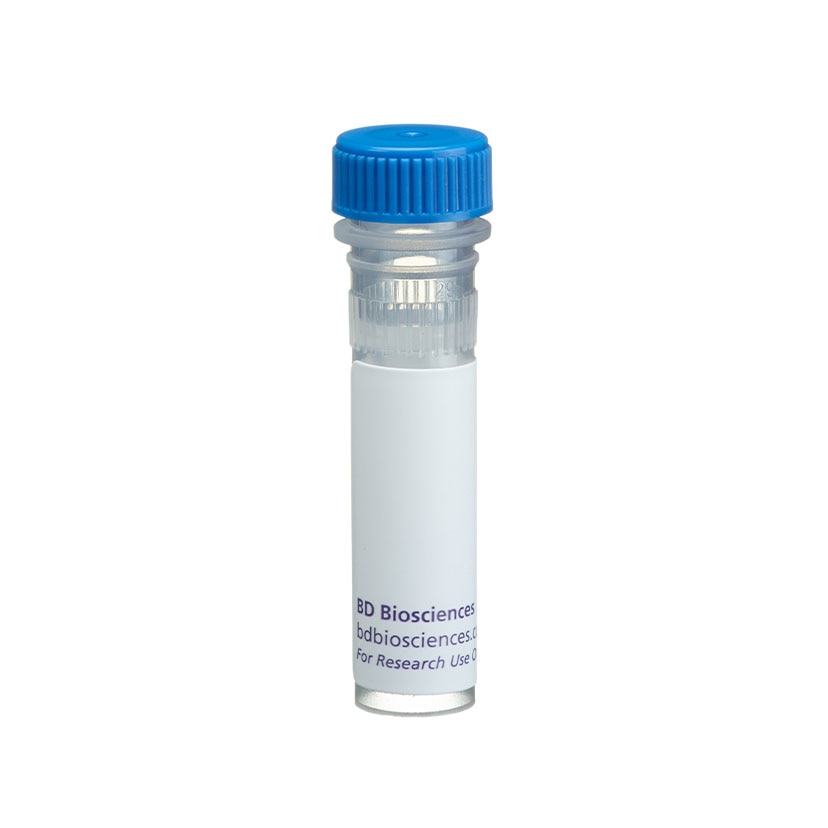-
Reagents
- Flow Cytometry Reagents
-
Western Blotting and Molecular Reagents
- Immunoassay Reagents
-
Single-Cell Multiomics Reagents
- BD® OMICS-Guard Sample Preservation Buffer
- BD® AbSeq Assay
- BD® Single-Cell Multiplexing Kit
- BD Rhapsody™ ATAC-Seq Assays
- BD Rhapsody™ Whole Transcriptome Analysis (WTA) Amplification Kit
- BD Rhapsody™ TCR/BCR Next Multiomic Assays
- BD Rhapsody™ Targeted mRNA Kits
- BD Rhapsody™ Accessory Kits
- BD® OMICS-One Protein Panels
- BD OMICS-One™ WTA Next Assay
-
Functional Assays
-
Microscopy and Imaging Reagents
-
Cell Preparation and Separation Reagents
Old Browser
This page has been recently translated and is available in French now.
Looks like you're visiting us from {countryName}.
Would you like to stay on the current location site or be switched to your location?
BD Pharmingen™ Purified Mouse Anti-Human DCC
Clone G97-449 (RUO)




Western blot analysis of human DCC on human nueroblastoma cells. Lysate from IMR-32 (ATCC CCL-127) cells were probed with Purified Mouse Anti-Human DCC (Cat. No. 554223) which recognizes DCC as a band of ~185 kDa.



Regulatory Status Legend
Any use of products other than the permitted use without the express written authorization of Becton, Dickinson and Company is strictly prohibited.
Preparation And Storage
Recommended Assay Procedures
Applications include western blot analysis (0.5 - 2.0 µg/ml). IMR-32 (ATCC CCL-127) cells are suggested as a positive control. The antibody has also been published for immunohistochemistry of formalin-fixed, paraffin-embedded tissue sections. By western blot, DCC-specific antibodies typically identify protein species with molecular weights of approximately 175-190 kDa. Doublets in this range have been reported in brain. Several smaller immunoreactive species, representing degradation products, cross-reactive species, or DCC forms arising from alternative splicing of DCC mRNA or in vivo processing of the DCC protein may also be identified.
Product Notices
- Since applications vary, each investigator should titrate the reagent to obtain optimal results.
- Caution: Sodium azide yields highly toxic hydrazoic acid under acidic conditions. Dilute azide compounds in running water before discarding to avoid accumulation of potentially explosive deposits in plumbing.
- Please refer to www.bdbiosciences.com/us/s/resources for technical protocols.
One of the most common regions of allelic loss in colorectal tumors is chromosome 18, which is lost in more than 70% of carcinomas, and in almost 50% of late adenomas. This region of loss has been mapped to chromosome 18q and a gene called Deleted in Colorectal Cancer (DCC). DCC encodes an ~185 kDa glycoprotein with significant homology to the neural cell adhesion molecule and other related cell surface glycoproteins. The predicted amino acid sequence of DCC cDNA consists of a 1448 amino acid (aa) long transmembrane phosphoprotein. The extracellular domain consists of 1098 amino acids and has 42% sequence homology to cell adhesion proteins of the neural cell adhesion molecule (N-CAM) family. DCC mRNA is found to be expressed in normal colonic mucosa, but its expression is reduced or absent in the majority of colorectal carcinomas. The loss of heterozygosity and subsequent alteration of DCC expression has also been observed in tumors of non-colorectal origin. Clone G97-449 recognizes human DCC. A truncated recombinant protein containing the intracellular domain of the human DCC was used as immunogen.
Development References (5)
-
Fearon ER, Cho KR, Nigro JM. Identification of a chromosome 18q gene that is altered in colorectal cancers. Science. 1990; 247(4938):49-56. (Biology). View Reference
-
Fearon ER, Hamilton SR, Vogelstein B. Clonal analysis of human colorectal tumors. Science. 1987; 238(4824):193-197. (Biology). View Reference
-
Reale MA, Hu G, Zafar AI, Getzenberg RH, Levine SM, Fearon ER. Expression and alternative splicing of the deleted in colorectal cancer (DCC) gene in normal and malignant tissues. Cancer Res. 1994; 54(16):4493-4501. (Biology: Immunoprecipitation, Western blot). View Reference
-
Shibata D, Reale MA, Lavin P. The DCC protein and prognosis in colorectal cancer. N Engl J Med. 1996; 335(23):1727-1732. (Clone-specific: Immunohistochemistry). View Reference
-
Vogelstein B, Fearon ER, Hamilton SR . Genetic alterations during colorectal-tumor development. N Engl J Med. 1988; 319(9):525-532. (Biology). View Reference
Please refer to Support Documents for Quality Certificates
Global - Refer to manufacturer's instructions for use and related User Manuals and Technical data sheets before using this products as described
Comparisons, where applicable, are made against older BD Technology, manual methods or are general performance claims. Comparisons are not made against non-BD technologies, unless otherwise noted.
Please refer to Support Documents for Quality Certificates
Global - Refer to manufacturer's instructions for use and related User Manuals and Technical data sheets before using this products as described
Comparisons, where applicable, are made against older BD Technology, manual methods or are general performance claims. Comparisons are not made against non-BD technologies, unless otherwise noted.
For Research Use Only. Not for use in diagnostic or therapeutic procedures.
